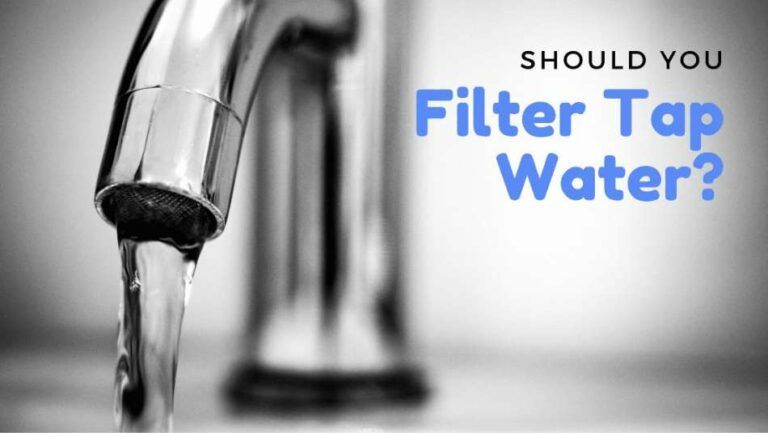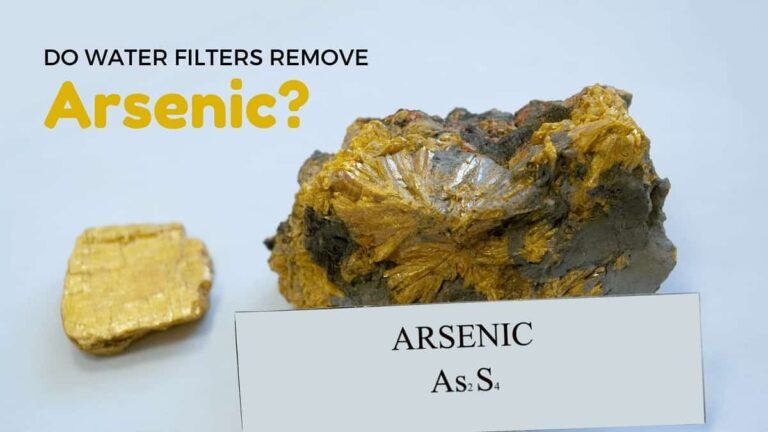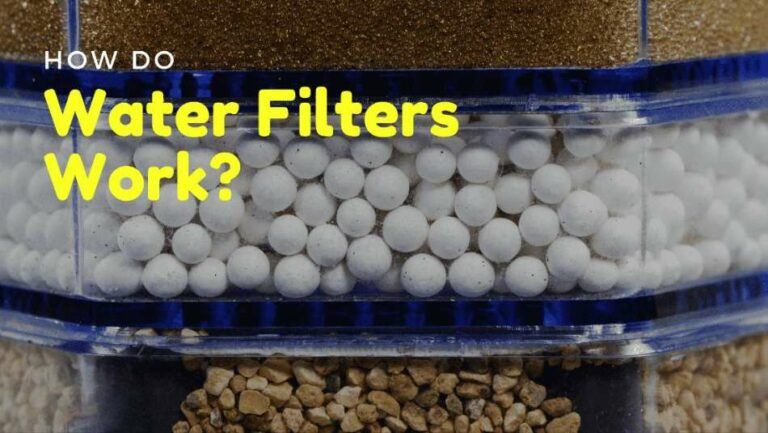What Do Brita Filters Remove?
Every one of us wants clean drinking water that tastes great and is free from harmful substances. While expensive water purifiers are an option, most of us are inclined to turn to cost-friendly Brita filters.
Available in a few different formats, most Brita filters use a coconut-based activated carbon filter to remove harsh metals, chemicals, and organic compounds that can affect the taste and smell of water.
With that said, what do Brita filters effectively remove? Whether you already own a Brita filter or are in the market, let’s break down exactly what you can expect a Brita filter to remove from your water.
Brita filters remove a whole host of unsavory chemicals and metals from your water. Below, we’ll break down the basics of what a Brita filter can actually remove.
Do Brita Filters Remove Flouride?
If you live in an urban or suburban area, odds are you probably have fluoride in your water. Do Brita Filters remove fluoride?
Unfortunately, Brita faucet filters and pitcher filters only remove a very trace amount of fluoride throughout the filter’s life.
In some cases, Brita filters do not filter out fluoride at all. Since Brita utilizes activated carbon and ion exchange resin, there is no effect on fluoride in the water itself.
If you’re concerned about Flouride in your water supply, as many of us are, you may want to opt for bottled water instead.
Do Brita Filters Remove Lead?
Lead in the water is a major concern for anyone who wants to drink tap water and save money on the bottled variety. After all, high levels of lead in drinking water have been linked to major health issues. With that in mind, do Brita filters remove lead?
Here’s the good news — Brita filters do effectively remove lead.
Both Brita Faucet Systems and Brita Longlast Filters have been proven to reduce lead in the water by 99%, along with other harmful contaminants like benzene, asbestos, ibuprofen, and BPAs.
If you have lead levels in your household water that exceed the EPA’s maximum levels, looking into a Brita filter may help to keep your water supply safe for drinking.
Do Brita Filters Remove Chlorine?
Chlorine in your drinking water not only affects the taste of the water itself, but it can lead to health concerns down the line. If you want to remove chlorine from your water, a Brita filter is a great option.
Brita filters effectively remove chlorine from tap water.
In fact, the coconut-based activated carbon filters used in standard Brita filters and Brita pitchers remove chlorine, zinc, copper, cadmium, and mercury.
Do Brita Filters Remove Calcium?
If your home utilizes well water, calcium exists in the supply naturally due to exposure between the well and the earth’s crust. Of course, the concentration of calcium in your water supply will vary depending on where that supply originates.
High levels of calcium in the water isn’t necessarily bad for your health, but they will negatively affect the taste of the water.
Can Brita filters help remove calcium from your water supply? Yes!
Studies show that Brita filters are safe and effective at removing calcium from the water as it runs through the activated carbon filter. Not only does this improve the water’s taste and texture, but it can prevent scales from forming on glass or water jugs over time.
Do Brita Filters Remove Microplastics?
Microplastics in water are becoming a greater cause for concern due to pollution and factory run-offs. As the name implies, it’s not exactly something you want to drink on the regular, especially in large amounts. Where does that leave you as a homeowner or renter? Well, luckily, a Brita filter can help.
While a Brita filter cannot 100% remove microplastics from tap water, tests show that the filter can remove a substantial amount of microplastics, making the water safe to drink.
A Brita filter can also remove many industrial chemicals and herbicides that tend to coincide with microplastics. To completely remove microplastics from your water, you’d likely have to invest in a more expensive whole house filtration system.
Do Brita Filters Remove Chloramine?
More often than not, the average homeowner or renter is unaware that chloramine may be lurking in their tap water. Yet, chloramines can be potentially harmful, even causing itchy dry skin and damaging digestive mucosa. Neither sounds like a particularly good time, meaning you’re going to want to eliminate as much from your tap as possible. Can Brita filters remove chloramine?
Here’s the good news, much like any activated carbon filter, a Brita filter can remove chloramine from the water. The only catch is that removing chloramine completely will require the substance to stay in contact with the filter for a longer period of time. This means you may have to run the water through the filter several times to make sure the water is 100% clear of chloramine.
Do Brita Filters Remove Bacteria?
In the present day, most of us are more concerned about the presence of bacteria than ever, particularly in our drinking water.
Do Brita filters remove bacteria? Unfortunately, no.
Brita has stated that their filters do not currently remove bacteria from tap water. While their filters are effective at removing contaminants and metals, activated carbon is not effective at removing bacteria. Only a reverse osmosis filtration system can effectively remove harmful bacteria from the water without using chlorination or UV radiation.
Do Brita Filters Remove PFAs?
In recent years, PFAs have become a hot button issue due to their potential health impacts and their widespread presence in the environment. Drinking water can be particularly vulnerable to these chemicals. With that said, do Brita filters remove PFAs? The answer is — it’s complicated.
Studies show that activated carbon filters, like those used by Brita, can remove up to 73% of PFAs on average. However, efficacy depends on the type of filter you’re using. For example, a sink Brita Filter is going to be more effective than a Brita pitcher. The only type of filter that can remove nearly all PFAs from water is a reverse osmosis filter. Unfortunately, those can be quite costly.
Do Brita Filters Remove Minerals?
We all want the essential minerals water can provide, but do Brita filters actually remove these wanted minerals? Not at all.
The activated carbon filters used by Brita do not remove minerals from tap water. Thus any popular Brita filter you choose will retain all of the healthy and beneficial minerals in your tap water, all while removing any of the dangerous chemicals and contaminants.
Conclusion
If you’re wondering what Brita filters remove, you’ve likely found that these affordable filters remove nearly all of the bad stuff you don’t want lurking in your water. While they may not be able to remove fluoride or heavy amounts of PFAs, they will sufficiently remove most of the unsavory chemicals and metals that can find their way into your tap water. This makes for clean safe drinking water that you can feel good about drinking!







